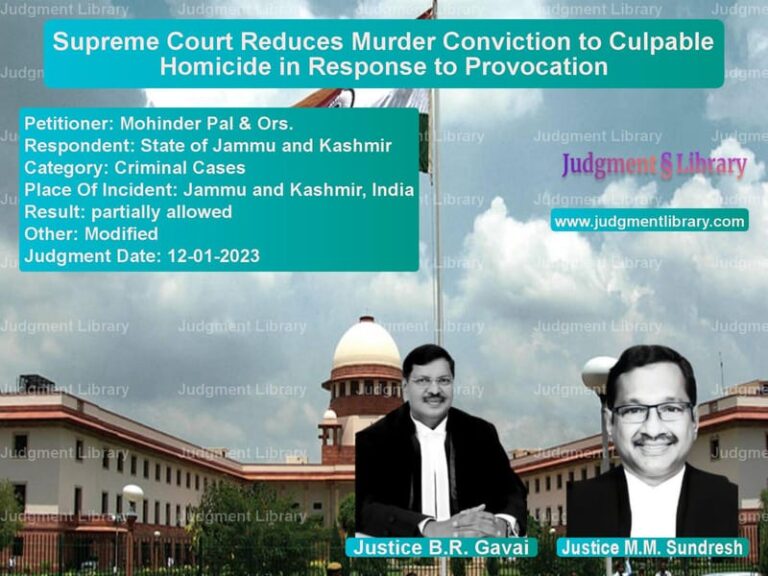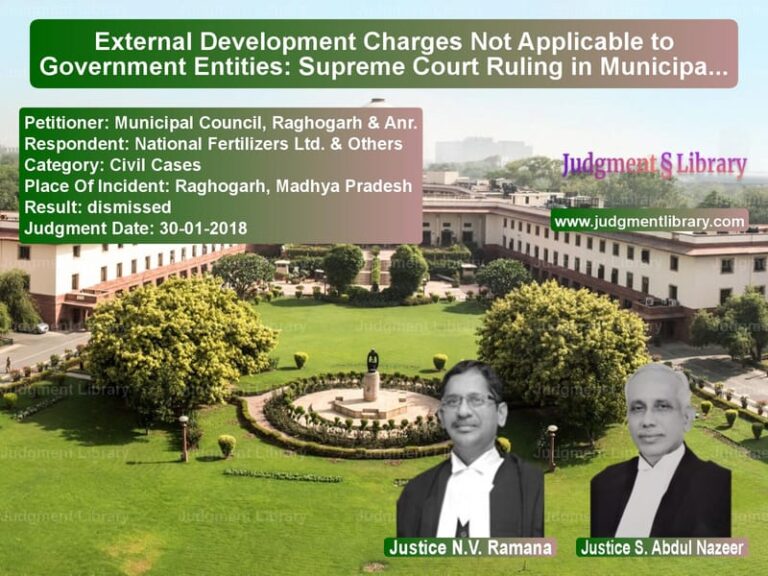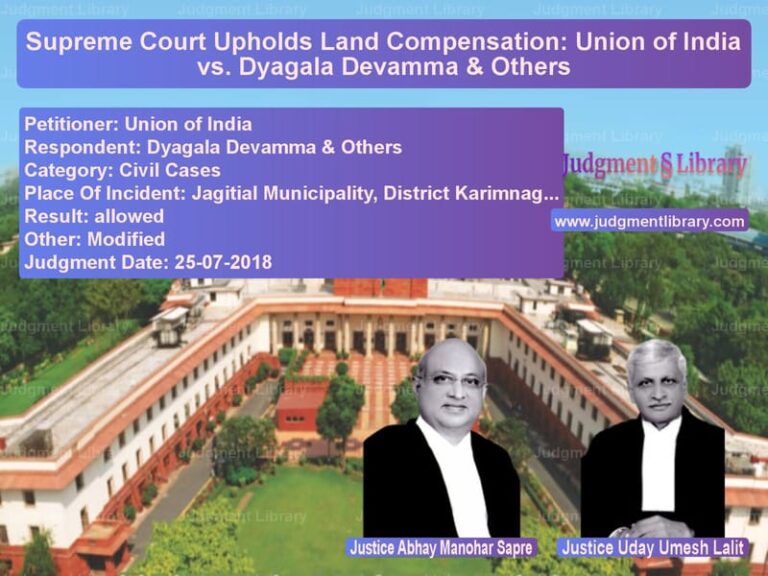Supreme Court Acquits Karnataka Residents in Dowry Death Case: Legal Analysis
The Supreme Court of India, in its judgment on May 7, 2021, in the case of Jayamma & Anr. v. State of Karnataka, overturned the conviction of the appellants who had been sentenced to life imprisonment by the Karnataka High Court under Section 302 read with Section 34 of the Indian Penal Code (IPC). The case revolved around the alleged murder of Jayamma (the deceased), who was burned alive by the accused, and the validity of a dying declaration as the primary evidence.
Background of the Case
The case originated from an incident on September 21, 1998, in Chitradurga, Karnataka. Jayamma, the deceased, was allegedly set on fire by the appellants—her relatives—over a financial dispute involving medical expenses. The prosecution claimed that the accused demanded Rs. 4,000 from the deceased, and when she refused, they poured kerosene on her and set her ablaze.
The trial court acquitted the appellants, citing inconsistencies in witness testimonies and doubts over the reliability of the dying declaration. However, the High Court reversed this decision and convicted the accused based primarily on the dying declaration.
Key Legal Issues
- Whether the dying declaration (Ex. P-5) was sufficient to convict the accused.
- Whether the High Court erred in reversing the trial court’s acquittal.
- Whether the prosecution had established a clear motive for the alleged crime.
- Whether the deceased was in a fit state of mind to give a dying declaration.
Arguments by the Petitioners (Accused)
- The dying declaration was unreliable as the victim had suffered 80% burns and was under heavy medication.
- There was no corroborative evidence apart from the dying declaration.
- The prosecution failed to establish a clear motive, as the financial dispute was trivial.
- Key witnesses, including the victim’s son (PW-2) and daughter-in-law (PW-5), turned hostile and contradicted the prosecution’s claims.
Arguments by the Respondent (State of Karnataka)
- The dying declaration was voluntary and recorded in the presence of a doctor.
- The victim explicitly named the accused and provided details of the attack.
- The High Court had the authority to reappreciate evidence and found the trial court’s acquittal erroneous.
- Minor inconsistencies in witness statements did not weaken the overall case.
Supreme Court’s Observations
1. Reliability of the Dying Declaration
The Supreme Court examined whether the victim’s statement could be solely relied upon for conviction:
“The dying declaration must be beyond suspicion and should not be the sole basis for conviction unless corroborated.”
The Court found inconsistencies in the manner of recording the declaration and contradictions between the doctor (PW-16) and police officer (PW-11).
2. Fitness of the Victim to Make a Statement
The Court raised concerns about the victim’s mental state due to her injuries:
“The endorsement of the doctor certifying the victim’s mental fitness was made after the statement was recorded, not before.”
This procedural lapse cast doubt on the credibility of the dying declaration.
3. Contradictory Witness Testimonies
The victim’s son and daughter-in-law denied that the accused had committed the crime:
“Their statements contradicted the prosecution’s case and supported the theory that the victim may have committed suicide.”
Given the absence of independent witnesses, the Court found these contradictions significant.
4. Lack of Corroborative Evidence
The Court noted that there was no physical evidence linking the accused to the crime:
“Without additional evidence, convicting the accused solely based on the dying declaration is unsafe.”
Final Judgment
The Supreme Court set aside the High Court’s order and restored the trial court’s acquittal:
“The appeals are allowed. The impugned order of the High Court is set aside, and the appellants are acquitted.”
Impact of the Judgment
- Reaffirmed that a dying declaration must be free of doubt to serve as sole evidence.
- Highlighted the need for corroborative evidence in criminal cases.
- Set a precedent for appellate courts to exercise caution when reversing acquittals.
Conclusion
The Supreme Court’s decision in Jayamma & Anr. v. State of Karnataka reinforces the principle that conviction cannot be based solely on a dying declaration unless it is free of doubt and corroborated. The ruling serves as an important precedent in cases involving circumstantial evidence and witness credibility.
Petitioner Name: Jayamma & Anr..Respondent Name: State of Karnataka.Judgment By: Justice Surya Kant, Justice Aniruddha Bose.Place Of Incident: Chitradurga, Karnataka.Judgment Date: 07-05-2021.
Don’t miss out on the full details! Download the complete judgment in PDF format below and gain valuable insights instantly!
Download Judgment: jayamma-&-anr.-vs-state-of-karnataka-supreme-court-of-india-judgment-dated-07-05-2021.pdf
Directly Download Judgment: Directly download this Judgment
See all petitions in Murder Cases
See all petitions in Bail and Anticipatory Bail
See all petitions in Custodial Deaths and Police Misconduct
See all petitions in Judgment by Surya Kant
See all petitions in Judgment by Aniruddha Bose
See all petitions in allowed
See all petitions in Quashed
See all petitions in supreme court of India judgments May 2021
See all petitions in 2021 judgments
See all posts in Criminal Cases Category
See all allowed petitions in Criminal Cases Category
See all Dismissed petitions in Criminal Cases Category
See all partially allowed petitions in Criminal Cases Category







